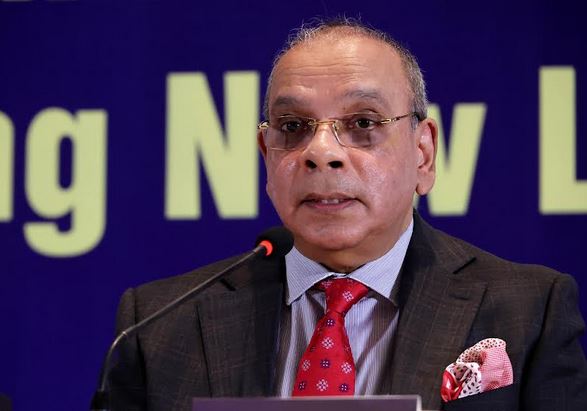News Flash

DHAKA, Aug 25, 2025 (BSS) – Chief Justice Syed Refaat Ahmed today stressed the need for a strategic partnership of all the stakeholders in justice delivery system to shape the kind of justice.
“The clarion call here is for all stakeholders in justice delivery to create strategic partnerships to shape the kind of justice value we want for this country looking ahead,” he said.
The Chief Justice was addressing as the chief guest a “National Conference on ADR: Role of District Legal Aid Committees (DLACs) in Implementing New Legislations” at a city hotel.
This collective endeavour shall bring in the paradigm shift, the indications of which are already to be witnessed out there, from a court-centric to a people-centric system that protects citizens from undue and egregious encroachments into their rights and entitlements, he said.
The Chief Justice said they have taken timely initiatives to ensure legal aid assistances to the accused persons as they are incapable to appoint lawyers for them.
“For ensuring rule of law and securing justice, pursuant to Notification No. 27/2024 J, dated 25 August 2024, of the High Court Division (Judicial Section) of the Supreme Court of Bangladesh, the Chief Justice of Bangladesh has directed that, in order to ensure legal assistance to accused persons present before the court, if they are not represented by a lawyer, an advocate shall be appointed from the Legal Aid Panel to represent them,” he said.
“The notification further directed that in such circumstances, if any accused person is unable to appoint a lawyer due to any special situation, he shall be identified as an incapable person, and necessary measures shall be taken to provide legal assistance to him by appointing a lawyer from the Legal Aid Panel, as per direction,” he said.
“One year into my administration, there has been a seismic change in the very concept of justice delivery, judicial administration, and judicial reform,” he said.
“As I have already stated earlier, the Legal Aid régime is organically linked to other stakeholders in the justice delivery ecosystem. The past one year has taught us that conceptual and systemic changes in case filings, criminal investigations, quality of prosecutorial and government pleader services in that these have to be brought up to par with other far-reaching reforms already introduced in the justice sector,” he said.
Legal Aid services is central to the reform discourse aiming at the reinvention and reorientation of a once sluggish top-down system to a service-centric one committed to provide quality adjudication, comprehensive services, and expanded diversionary alternatives to adversarial trial, he said.
The Chief Justice went on saying that the result should be a reinvented governance régime driven by the motto that people in plight and distress deserve and expect an expeditious and effective disposal of problems.
“Alternative Dispute Resolution and legal aid are not marginal concerns. They are the very bridge between the formal justice system and the people’s lived reality,” he said.
The Chief Justice said the judiciary will command trust only if it is seen as independent, efficient, and compassionate.
“Independence means a judiciary free from executive interference, with its own autonomy to manage its budget and administration,” he said.
Efficiency means modern procedures, digital platforms, and ADR mechanisms that reduce delay and backlog, he said, adding that compassion means legal aid that is not perfunctory but transformative.
“These are not abstract ideals rather they are concrete reforms now underway, and this conference is an opportunity to evaluate our progress and chart the way forward,” he said.
The judiciary as a fully functioning constitutional organ of the state will continue to stand shoulder-to-shoulder with all relevant stakeholders in this journey, confident that the reforms of today will be the legacy of tomorrow, he opined.
Law, Justice and Parliamentary Affairs Adviser Dr Asif Nazrul presided over the conference.
Attorney General for Bangladesh Md Asaduzzaman, Ambassador of European Union Michael Miller and Resident Representative, UNDP Stefan Liller, among others, were present.
The Chief Justice said that the convulsive reordering of the political economy of Bangladesh by the July Revolution had us all rethinking our priorities in general and our mode of justice delivery in particular pretty much from the word go.
“It was evident from the outset that the reordering of the political order would have far-reaching consequences on judicial governance. This was brought home to me in the very heady days of August 2024 when my first reform intervention came in the area of Legal Aid,” he stated.